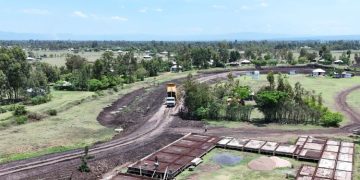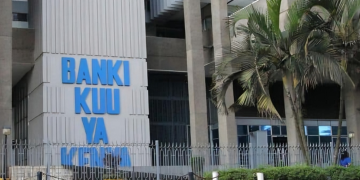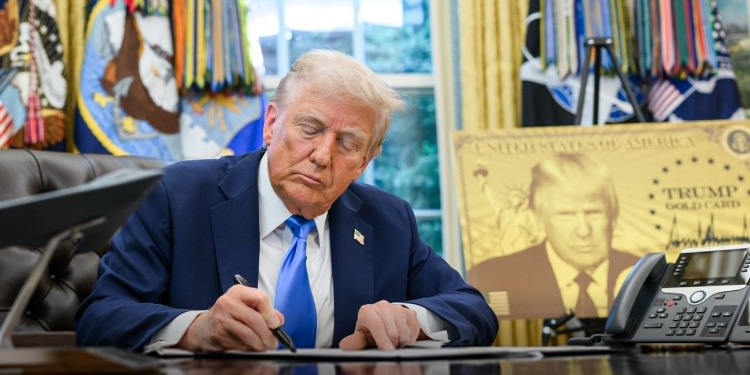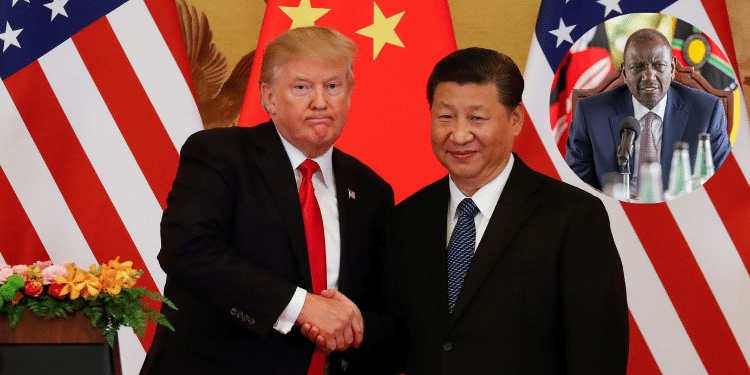U.S President Donald Trump has taken steps to counter China’s influence in Kenya and other parts of Africa, following President William Ruto’s recent trade agreements with China’s President during his visit to Beijing.
Speaking at a U.S.-Africa business forum hosted by the American Chambers of Commerce in Ivory Coast, Ambassador Troy Fitrell, Senior Bureau Official at the Bureau of African Affairs, delivered a pointed message stating that America is ready to compete, not with aid, but with trade and investment.
His announcement signifies a shift in tone and policy by President Trump’s administration, directly challenging China’s growing economic foothold in Africa.
“For too long, we have prioritized development assistance over promoting U.S. commercial engagement. Going forward, we will continue to invest in development – but we will do so through expanded trade and private investment,” the U.S. official said.
Trump Makes Move to Counter China’s Influence in Africa
According to Trump’s representative, the U.S. has long emphasized macroeconomic reforms rather than lowering barriers and opening doors for American companies on the ground.
As a result, U.S. government resources have frequently been too slow, too fragmented, and too siloed to compete effectively with global competitors like China and Russia. However, this is set to change under the Trump Administration.
“We no longer see Africa as a continent in need of handouts, but as a capable commercial partner. ‘Trade, not aid,’ a slogan we’ve seen thrown around for years, is now truly our policy for Africa — a shift I know you have long sought and one that I am committed to strengthening.
Because assistance involves a donor and a recipient, but commerce is an exchange between equals,” Ambassador Fitrell stated.
According to Ambassador Fitrell, the Trump Administration has outlined a six-point strategy to boost U.S. trade and investment in Africa, which is helping reduce reliance on Chinese influence in the region.
Also Read: Trump Secures $600 Billion Investment in Saudi Arabia
The main goal is to increase American exports, attract private investment, and foster mutual economic prosperity.
Key elements of the strategy include Commercial Diplomacy, whereby US ambassadors in Africa are now evaluated based on how effectively they promote American business and facilitate deals.
Market Reforms, where the U.S. will collaborate with African governments to implement the top five reforms identified by the private sector to enhance business environments’ attractiveness and competitiveness.
Another strategy is the use of Infrastructure Projects, whereby the U.S. aims to support commercially viable infrastructure projects in Africa — in contrast to “vanity projects” backed by China — focusing on sustainability and long-term value.
Ruto Signs Trade Agreements with China
The implementation of Commercial Diplomacy Missions is another strategy deployed whereby U.S. officials will lead trade-focused trips to countries making necessary reforms, bringing private sector representatives to identify tangible business opportunities.
Also Read: Trump Announces ‘Historic’ US-UK Trade Deal
The U.S. move comes days after President Ruto visited China and signed various trade agreements. On April 24, 2025, Kenya secured major deals in trade, infrastructure, and strategic partnerships.
According to a statement issued by the State House, the Chinese government agreed to collaborate with Kenya on implementing strategic connectivity development projects.
These include investments in extending the Standard Gauge Railway from Naivasha to Malaba (Phase II). Additionally, China committed to facilitating the expansion and dualing of the Nairobi-Nakuru-Mau Summit Road.
Follow our WhatsApp Channel and X Account for real-time news updates.














































































